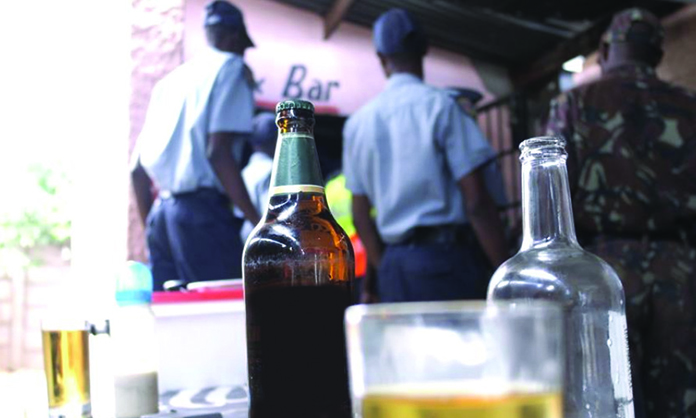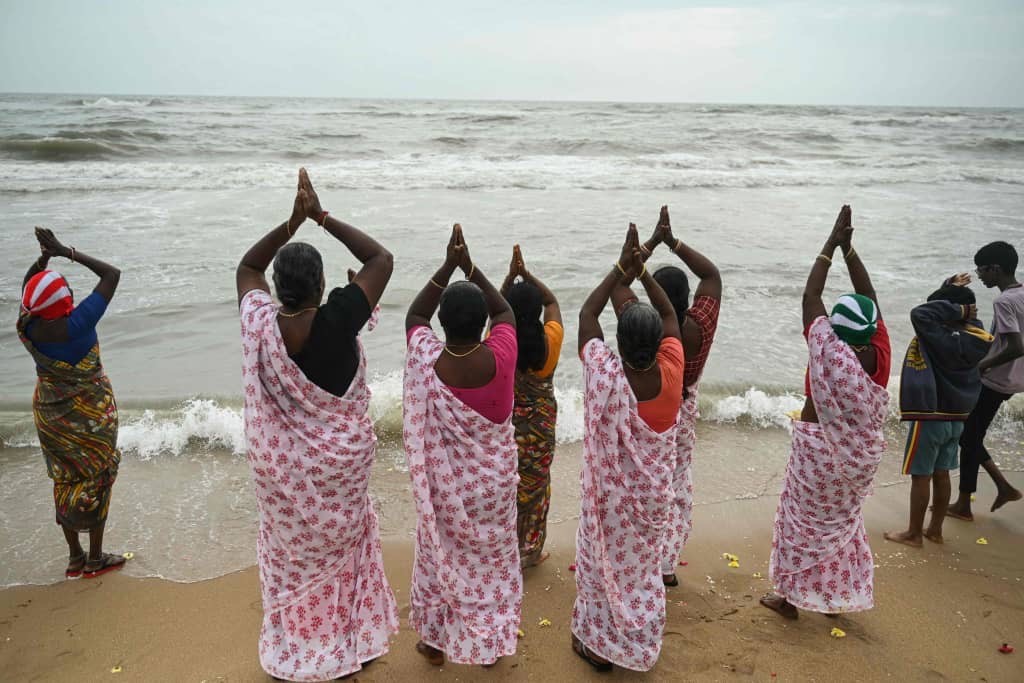The Zambezi Regional Pastors Forum supports banning the sale of alcohol during the festive season as this is a time for families to connect and reconcile, it says.
The forum’s chairperson, Benjamin Limbo, says selling alcohol is a cardinal sin.
Limbo recently contributed to the debate on whether liquor outlets across the country should be allowed to sell alcohol on Christmas Day and New Year’s Eve.
“Alcohol takes away the precious moments of bonding from family members who have been apart the whole year,’ he said.
“People should spend time with their families in the right state of mind . . . I think people have enough time during the year to consume alcohol,” he said.
Limbo referred activities like unprotected sex and gender-based violence (GBV) taking place while under the influence of alcohol.
Evangelical Lutheran Church in Namibia (Elcin) retired bishop Veikko Munyika says the call to ban alcohol sales on certain holidays is good, but not possible, as not everyone is religious.
“As pastors we cannot force people to stop drinking or selling alcohol. We are not police officers or councillors. People should rather minimise drinking alcohol by opening their cuca shops after church, and closing them before midnight,” Munyika said.
Speaking to New Era recently, reverend Taraah Shalyefu of the Ongwediva Anglican Church said he does not support selling alcohol on “sacred” days.
“Limitations are put in place to control those in our society who cannot control themselves. Mind you, churches are likely not to be attended, because people are out drinking, but we are supposed to be commemorating the birth of Christ,” he said.
ECONOMIC IMPLICATIONS
The chief executive of the Namibia Chamber of Commerce and Industry (NCCI), Charity Mwyia, yesterday said banning the sale of alcohol would have a negative impact on people’s livelihoods.
She said the onus is on sellers, consumers and law-enforcement agencies to ensure that laws regulating the sale of alcohol are adhered to.
“The festive season is a time for people to unwind and enjoy themselves, and some folks prefer to do so with alcohol by their side. It is important that the authorities and alcohol sellers ensure compliance to the laws in place,” she said.
In 2018, the World Health Organisation’s report on substance abuse suggested that Namibia was among the countries with the highest level of per capita alcohol dependence within the African region.
More than half of Namibian adults consume an average of 10 litres of alcohol per day, with a large proportion of adult consumers of alcoholic beverages being women.
At the time, alcohol consumption was increasing in the northern regions of Namibia, particularly in the Ohangwena, Oshana, Omusati and Oshikoto regions.
Homebrewed beer is the most widely consumed type of alcoholic beverage that accounts for 67% of the total consumption in the country’s northern regions.
Erongo police spokesperson inspector Ileni Shapumba says the alcohol ban debate brings to the fore the balance between public safety and personal responsibility, economic impact and the rights of individuals and businesses.
Shapumba advocates responsible consumption rather than outright prohibition.
‘KINDERGARTEN APPROACH’
“We shouldn’t encourage a situation akin to a kindergarten approach,” he says.
Shapumba elaborated on the economic implications of an alcohol ban.
“There are businesses and individuals whose livelihoods depend on the alcohol industry. Banning alcohol could adversely affect these stakeholders and the country’s economic development,” he says.
Shapumba says responsible drinking means understanding one’s limits and planning accordingly.
“For instance, if you’re drinking, you shouldn’t drive – have a designated driver instead,” he advises.
He urges bottle store and club owners to be vigilant, especially in preventing underage drinking.
“Serving alcohol to minors or excessively intoxicated individuals is not just illegal, but also irresponsible,” he says.
‘LIBERAL SOCIETY’
Pastor Zezito Epifanio of the Logos Family Church at Keetmanshoop in the //Kharas region says Namibians have become a liberal society and to introduce a ban would cause public outrage.
He says the problem is not alcohol, but the demand for it.
“My personal opinion is to ban alcohol and create a culture of a non-alcohol consuming society. However, looking at the realities . . . Look at what happened during Covid-19 . . .
“We saw all the wrestling between government leaders, shebeen owners and other liquor selling outlets to enable the sale of alcohol, reportedly for economic benefits.
“So, I think government leaders need to tighten the sale of alcohol and quantities within existing laws.”
‘DRINKING UNTIL MORNING’
Lynette Oosthuizen, manager of an accommodation establishment at Keetmanshoop says: “I worry in December for the safety of my people, because you can just get killed. The biggest problems are the shebeens where people drink until the morning. But to stop the sale entirely could also hamper the economy.
“By banning, we could also just create another problem as it usually leads to the creation of black markets,” she says.
//Kharas police commissioner Marius Katamila says the police are enforcing the law, and communities give consent for people to get liquor licences.
“The community has the power to force the closure of alcohol-selling outlets, since they are the ones who give consent to aspiring liquor outlet businesses when they have to apply to obtain licences,” he says.
‘TIME FOR INTROSPECTION’
Leadership coach and pastor Shirley Magazi calls for introspection.
“Humanity needs to return to the reason for the festive season, which is a celebration of the birth of Christ,” she says.
Magazi said alcohol does not add value to the lives of consumers.
“There is no reason why people should make something that devalues them as part of their enjoyment. That is not maturity,” she says.
Bishop Lukas Katenda says limiting alcohol sales would serve no purpose.
“While it may reduce alcohol intake temporarily, there would be no long-term impact, because the limitation would be lifted after the holidays,” he says.
Meanwhile, a shebeen owner at Otjiwarongo in the Otjozondjupa region, Amakali Kuhanga, says: “At least the lawmakers should permit us to have a half business day until 13h00 before we close, because we do not make any profit, but we encounter losses rather.”
Stay informed with The Namibian – your source for credible journalism. Get in-depth reporting and opinions for
only N$85 a month. Invest in journalism, invest in democracy –
Subscribe Now!







